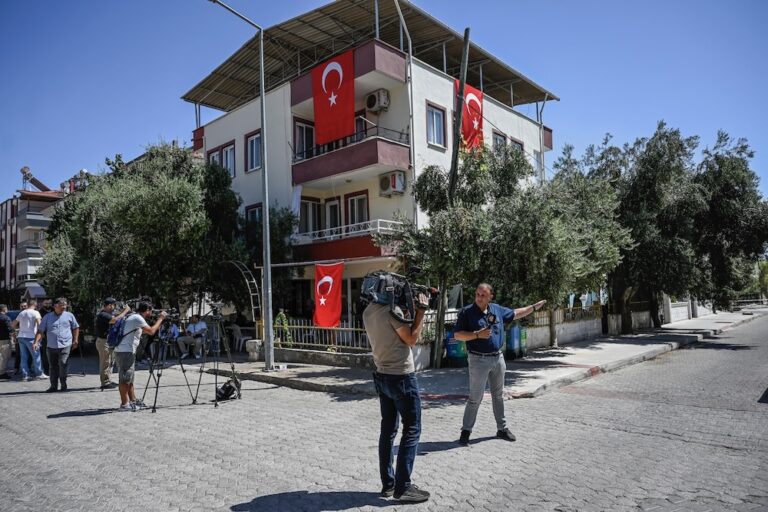(RSF/IFEX) – The Istanbul-based Özgür Radyo radio station went off the air on 18 August 2004, in response to a 30-day ban ordered by the broadcast regulator RTUK. RSF has denounced the suspension as “too harsh and once again completely disproportionate.” “The RTUK appears to be ignoring democratic reforms undertaken with the objective of Turkish […]
(RSF/IFEX) – The Istanbul-based Özgür Radyo radio station went off the air on 18 August 2004, in response to a 30-day ban ordered by the broadcast regulator RTUK. RSF has denounced the suspension as “too harsh and once again completely disproportionate.”
“The RTUK appears to be ignoring democratic reforms undertaken with the objective of Turkish membership in the European Union,” the organisation said. “It continues to censor at will the media outlets it does not like.”
“The supreme power of this body remains a major stumbling block to press freedom in the country,” RSF added. The organisation has called on the state minister for the press, Besir Atalay, to intervene and urge the RTUK to reverse its decision.
Özgür Radyo was charged with “incitement to violence, terror and discrimination on the basis of race, region, language, religion or sect, or broadcast that gives rise to hatred in society” under Article 4 of the RTUK’s Law 3984.
The charges stem from a 27 August 2003 Özgür Radyo press review, during which the station made reference to the daily “Günlük Evrensel”‘s front page, where it was reported that plainclothes police had “massacred” members of the Democratic People’s Party (DEHAP) at a wedding in Adana, in the country’s south.
The RTUK sentenced Özgür Radyo to a 30-day suspension on 24 February 2004. The station appealed the decision to an Ankara administrative court, but the ruling was upheld on 9 June. The RTUK has the power to revoke the station’s licence in the event of further offences.
The broadcast council regularly sanctions media outlets that are either pro-Kurd or highly critical of the government, ranging from warnings to revoking of licences.
In one case, Günes TV, the local television station in Malatya, in the country’s east, stopped broadcasting for a month beginning on 30 March. The RTUK had accused the station of “threatening the existence and independence of the state, the indivisible unity of the nation and its people and the reforming principles of Ataturk” under Article 4 of the RTUK’s Law 3984. The charges followed a 22 May 2003 incident in which a journalist with the station offered his sympathy to the family of a young far-left militant who died after accidentally detonating an explosive she was carrying. The journalist was immediately fired by the station.
On 1 April 2004, the RTUK invoked the same article to suspend the local ART television station in Diyarbakir, in the country’s southeast, for one month. The station had broadcast two Kurdish songs on 16 August 2003.


